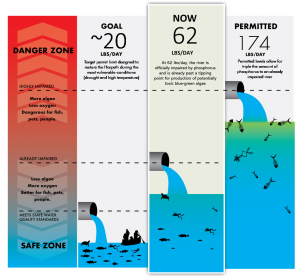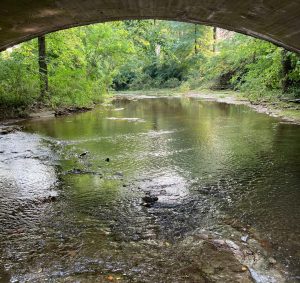
Discharge Permit for Franklin Sewer Treatment Plant
Email Petition Instructions: Use our email petition form to the left in order to send a message to Tennessee Department of Environment and Conservation (TDEC)
Rural land is rapidly disappearing in middle Tennessee — regional planning is needed to preserve our rich history, farmland, waterways, and clean water, not to mention traffic!
Middle Tennessee is growing rapidly! At this rate, the region will have 3 million people and their cars by 2040. A stark result is that rural land is disappearing at the rate of almost 20 acres per day! Yet these farm and natural lands have real economic value. Middle Tennessee farms and natural lands provide more than $3 billion in ecosystems services — such as cleaning and filtering our air and water and flood protection — not to mention billions in increased property values, agricultural and timber products, and over 175,000 jobs.
The risk of losing Middle Tennessee’s iconic rural lands, agricultural production, and scenic landscapes is very real and is affecting drinking water supplies and water quality. Farming is disappearing from the region and many of the remaining large tracts of land are no longer used for farming. The weakened infrastructure for farming threatens agriculture in the region. Since 2002, roughly 260,000 acres of farmland in Middle Tennessee have gone out of production. An additional 120,000 acres have been developed since 1999 and of those newly developed acres, more than half came from farm and forestland (twice the size of Murfreesboro).
Report: The economic value of open space
Cumberland Region: Farms & Natural Lands Initiative
Harpeth Conservancy has a long history of expertise and involvement in helping formulate land use plans, local ordinances (especially with stormwater in developments and stream buffers), and regional planning.
Over the past 20 years, numerous land use plans in communities around the Harpeth River region now promote the vision of maintaining rural and agricultural lands and the Harpeth as natural assets. Our experts were the first to identify the unintended consequences of numerous 2014 state laws that have severely weakened the 20-year-old urban growth boundary statute. This law was designed to control massive sprawl. The annexation of Williamson county rural land into the town of Thompson’s Station for a high density residential golf course subdivision was one of several more recent proposals that have identified challenges to maintaining rural areas in county and city growth plans.
Rural areas are important for overall water quality in the Harpeth and waterways around Middle TN. One of our urgent priorities is to expand support so we can work with partners to: foster joint efforts among cities and counties in the region, explore ways other communities in the U.S. have handled these challenges, review current planning efforts, form consensus on next steps, and work on their adoption. We need to create a coalition effort with the farm-to-table movement, agricultural land owners, historic preservation, land preservation, smart growth, and transportation planning interests. We need to work with key local and state leadership to enable coordination of short- and long-term large rural landscape protection efforts and implement them in TN.
We are currently working actively with citizens’ groups to shape the future of Williamson County through the Williamson County comprehensive land use update.
Harpeth Conservancy has long been active in similar issues. We helped educate area residents to the potential loss of unique resources associated with the construction of I-840. We helped area residents recognize the issues presented, help them with what needs to be done, and how to organize their efforts. We were able to work with area residents to get the highway’s route changed to protect the Kelley Creek natural area.
In the News: Residents concerned by Thompson's Station development
Williamson County Comprehensive Land use Plan 2040: Residents concerned by Thompson's Station development
In the News:1-840–On the Road to Recovery

Email Petition Instructions: Use our email petition form to the left in order to send a message to Tennessee Department of Environment and Conservation (TDEC)

YOUR ATTENDANCE AT THE AUGUST 30, 2022 PUBLIC HEARING AND WRITTEN COMMENTS TO TDEC ARE CRITICAL! THE HARPETH RIVER IS STILL IMPAIRED, BUT THE DRAFT
© 2019 Harpeth Conservancy. All rights reserved.